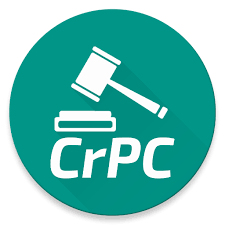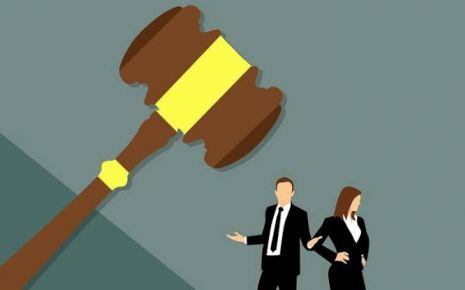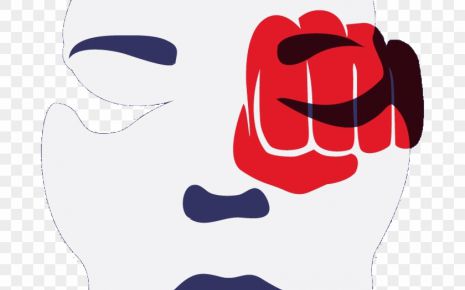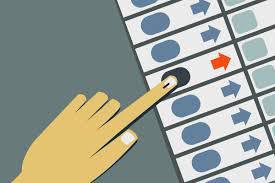Analyzing South Africa's Allegations Of Genocide Against Israel Under International Law
"South Africa vs. Israel" was tried under the International Court of Justice (ICJ)
on December 29, 2023, by South Africa. The International Court of Justice has 17
judges hear South Africa's case, along with two ad hoc judges appointed by South
Africa and Israel. The application was filed by South Africa, claiming that
Israel had committed an act of genocide against Palestinians in Gaza following
attacks by Hamas and other armed groups on October 7, 2023, and that Israel had
failed to take appropriate action in response. South Africa requests in its
application that the court impose "provisional measures" to safeguard the
Palestinian people in Gaza. These measures include the immediate termination of
military operations that "constitute or give rise to violations of the Genocide
Convention."
In this blog, we explore the legal complexities surrounding the allegations of genocide against Israel.
Understanding legal landscape
Genocide, as defined by the 1948 United Nations Genocide Convention, encompasses acts committed with the intent to destroy, in whole or in part, a national, ethnic, racial, or religious group. To establish genocide under international law, clear evidence of genocidal intent and the commission of specific acts enumerated in the Convention must be presented. Africa says that the Israeli military in Gaza breaches the 1948 Convention.
Tal Becker, an advocate for the Israeli team, told the court that the Genocide Convention was drawn up in the aftermath of the mass killing of Jews in the Holocaust and that the phrase "never again" is one of "the highest moral obligations" for Israel. By requesting an interim order against Israel's invasion, Becker said, South Africa is trying to deny Israel the opportunity to meet its obligations to the captives taken and to the Israelis displaced after the October 7 attacks from communities near the border with Gaza.
But Neil Sammonds, senior campaigner on Palestine at the human rights organization War on Want, told Al Jazeera that Israel's arguments are "weak.". "Of course, both South Africa and human rights organizations like us condemn the killing of civilians and the taking of hostages [by Hamas)," Sammonds said. "But this in no way justifies the response from Israel. As an occupying force, Israel does not have the right to self-defense; this argument does not hold water."
Before the war, the UN reported that 500 aid trucks were entering Gaza every day; Israel then forbade the entry of any aid. Some 200 trucks were allowed in during a brief pause in fighting agreed between Israel and Hamas, but fewer than 100 trucks were going in outside the truce period.
The judgment of the ICJ:
On Friday, January 26, the International Court of Justice (ICJ) declared that Israel had to "take all measures within its power" to stop acts of genocide in Gaza. However, he refrained from issuing a cease-fire.
The World Court has not yet ruled on the core of South Africa's case, which is whether Israel is committing genocide in Gaza. All 17 judges sitting in on the case, however, voted in favor of putting emergency measures into place.
Views Of Other Nations Regarding This Case:
The US has declared its opposition to the lawsuit relating to genocide. During a press briefing at the White House on January 3, national security spokesperson John Kirby described South Africa's submission as "meritless, counterproductive, and completely without any basis. "Given Germany's history of the Holocaust, in which the Nazis murdered six million Jews in Europe, the country's declaration of support for Israel on Friday, the day the hearings ended, has significant symbolic meaning. In the aftermath of those horrors, Israel was established as a safe haven for Jews during World War II.
Steffen Hebestreit, the spokesman for the German government, stated that "Israel has been defending itself." He also made reference to the Holocaust, which served as a major impetus for the United Nations Genocide Convention. No Western country has declared support for South Africa's allegations against Israel. The U.S., a close Israel ally, has rejected them as unfounded, the U.K. has called them unjustified, and Germany said it "explicitly rejects" them. China and Russia have said little about one of the most momentous cases to come before an international court. The European Union also hasn't commented.
Conclusion
In conclusion, the case of South Africa vs. Israel before the International Court of Justice (ICJ) has brought to light the complex legal and humanitarian issues surrounding the Israeli-Palestinian conflict. The ICJ's interim rulings, while refraining from making a final determination on the allegations of genocide, have underscored the urgent need for action to address the humanitarian crisis in Gaza and uphold principles of justice and human rights.
The ICJ's directives for Israel to take immediate measures to prevent acts covered by the Genocide Convention and provide humanitarian assistance to Palestinians in Gaza represent a significant step towards accountability and the protection of vulnerable populations. However, the differing responses from nations, including opposition from the United States and support from Germany for Israel, highlight the ongoing complexities and divisions within the international community regarding the Israeli-Palestinian conflict.
Moving forward, all stakeholders must prioritize the well-being and rights of civilians in Gaza and work towards a peaceful resolution of the conflict based on principles of justice, equality, and respect for international law.
References:
In this blog, we explore the legal complexities surrounding the allegations of genocide against Israel.
Understanding legal landscape
Genocide, as defined by the 1948 United Nations Genocide Convention, encompasses acts committed with the intent to destroy, in whole or in part, a national, ethnic, racial, or religious group. To establish genocide under international law, clear evidence of genocidal intent and the commission of specific acts enumerated in the Convention must be presented. Africa says that the Israeli military in Gaza breaches the 1948 Convention.
Involvement of South Africa
Why only South Africa? Critics may offer several explanations, but the commitment to justice, equality, and human rights that accompanies South Africa's democratic transition from apartheid is perhaps the most pertinent. South Africa's history of overcoming institutionalized discrimination may make it morally required to speak out against similar injustices around the world, including in the Israeli-Palestinian context. Second, South Africa has a long history of standing with the Palestinian people, and given the gravity of the genocide, any state that ratifies the convention may file charges with the International Court of Justice even if they are not directly involved.Israel's argument in this:
Israel held a three-hour session on January 12, 2024, to defend itself against accusations of genocide made by Africa. The International Court of Justice heard Israel's defense against such allegations. Israel claimed that the Gaza War began on October 7 when Hamas attacked an army outpost and the village nearby in southern Israel, taking hundreds of people hostage. Israel further claimed that Israel is entitled to self-defense under international law.Tal Becker, an advocate for the Israeli team, told the court that the Genocide Convention was drawn up in the aftermath of the mass killing of Jews in the Holocaust and that the phrase "never again" is one of "the highest moral obligations" for Israel. By requesting an interim order against Israel's invasion, Becker said, South Africa is trying to deny Israel the opportunity to meet its obligations to the captives taken and to the Israelis displaced after the October 7 attacks from communities near the border with Gaza.
But Neil Sammonds, senior campaigner on Palestine at the human rights organization War on Want, told Al Jazeera that Israel's arguments are "weak.". "Of course, both South Africa and human rights organizations like us condemn the killing of civilians and the taking of hostages [by Hamas)," Sammonds said. "But this in no way justifies the response from Israel. As an occupying force, Israel does not have the right to self-defense; this argument does not hold water."
Intent To Commit Genocide:
The legal team representing Israel said that the accusations made by South Africa regarding Tel Aviv's purported inherent intent to "destroy" the Palestinian people are based on "random assertions" that have been "taken out of context."Acts of genocide:
Israel's attorneys asserted that Hamas was utilizing civilians as human shields and Israeli forces were attempting to "minimize" civilian life in response to claims of actual genocidal acts, including the indiscriminate killing of civilians.Humanitarian aid:
The claims that Israel is obstructing fuel, food, water, and other essential supplies from Gaza are "inaccurate," according to Israel's representative, who also stated that "70 trucks" of food aid were permitted into Gaza prior to the conflict and that number has increased to "106 trucks in the past two weeks."Before the war, the UN reported that 500 aid trucks were entering Gaza every day; Israel then forbade the entry of any aid. Some 200 trucks were allowed in during a brief pause in fighting agreed between Israel and Hamas, but fewer than 100 trucks were going in outside the truce period.
The judgment of the ICJ:
On Friday, January 26, the International Court of Justice (ICJ) declared that Israel had to "take all measures within its power" to stop acts of genocide in Gaza. However, he refrained from issuing a cease-fire.
The World Court has not yet ruled on the core of South Africa's case, which is whether Israel is committing genocide in Gaza. All 17 judges sitting in on the case, however, voted in favor of putting emergency measures into place.
The International Court of Justice (ICJ) issued six interim rulings:
- The World Court also said that Israel must: In addition to killings and physical and mental harm, there are also conditions of life designed to destroy a group, such as preventing births within the group and preventing births within it. event its military from committing any genocidal acts "with immediate effect.".
- Sixteen out of 17 judges ruled that Israel must take all steps in its power to prevent and punish the direct and public incitement to commit genocide against the Palestinians in the Gaza Strip.
- Moreover, the court ordered Israel to provide humanitarian assistance and other basic services to Palestinians in Gaza, referring to Palestinians as a protected group under the Genocide Convention.
- Israel has been given the responsibility by the World Court to safeguard evidence in Gaza about alleged acts under Articles 2 and 3 of the Genocide Convention. It has been emphasized that fact-finding missions, international mandates, and other international organizations must not be hindered from accessing this evidence.
- Lastly, by a 15:2 majority, the court also asked Israel to submit its report to the ICJ on measures taken to implement the ruling within one month.
Comment of the ICJ on Israel's actions in Gaza:
According to the court, although Israel claims to have taken measures to reduce harm to civilians, these actions have proven insufficient. The court expressed concern that the current humanitarian situation is in danger of worsening before the delivery of its final verdict.Views Of Other Nations Regarding This Case:
The US has declared its opposition to the lawsuit relating to genocide. During a press briefing at the White House on January 3, national security spokesperson John Kirby described South Africa's submission as "meritless, counterproductive, and completely without any basis. "Given Germany's history of the Holocaust, in which the Nazis murdered six million Jews in Europe, the country's declaration of support for Israel on Friday, the day the hearings ended, has significant symbolic meaning. In the aftermath of those horrors, Israel was established as a safe haven for Jews during World War II.
Steffen Hebestreit, the spokesman for the German government, stated that "Israel has been defending itself." He also made reference to the Holocaust, which served as a major impetus for the United Nations Genocide Convention. No Western country has declared support for South Africa's allegations against Israel. The U.S., a close Israel ally, has rejected them as unfounded, the U.K. has called them unjustified, and Germany said it "explicitly rejects" them. China and Russia have said little about one of the most momentous cases to come before an international court. The European Union also hasn't commented.
Conclusion
In conclusion, the case of South Africa vs. Israel before the International Court of Justice (ICJ) has brought to light the complex legal and humanitarian issues surrounding the Israeli-Palestinian conflict. The ICJ's interim rulings, while refraining from making a final determination on the allegations of genocide, have underscored the urgent need for action to address the humanitarian crisis in Gaza and uphold principles of justice and human rights.
The ICJ's directives for Israel to take immediate measures to prevent acts covered by the Genocide Convention and provide humanitarian assistance to Palestinians in Gaza represent a significant step towards accountability and the protection of vulnerable populations. However, the differing responses from nations, including opposition from the United States and support from Germany for Israel, highlight the ongoing complexities and divisions within the international community regarding the Israeli-Palestinian conflict.
Moving forward, all stakeholders must prioritize the well-being and rights of civilians in Gaza and work towards a peaceful resolution of the conflict based on principles of justice, equality, and respect for international law.
References:
- https://www.chathamhouse.org/2024/01/south-africas-genocide-case-against-israel-international-court-justice-explained
- https://economictimes.indiatimes.com/news/international/world-news/genocide-case-against-israel-where-does-the-rest-of-the-world-stand-on-the-momentous-allegations/articleshow/106826235.cms?from=mdr
- https://www.un.org/en/genocideprevention/genocide.shtml
- https://www.ndtv.com/world-news/israel-hamas-israel-gaza-why-south-africa-has-dragged-israel-to-world-court-on-genocide-charges-4840213
- https://www.aljazeera.com/news/2024/1/12/icj-genocide-case-what-are-israels-main-arguments
- https://www.reuters.com/world/middle-east/who-are-veteran-south-african-israeli-judges-hearing-gaza-genocide-case-2024-01-25/
Law Article in India
Legal Question & Answers
Lawyers in India - Search By City
LawArticles
How To File For Mutual Divorce In Delhi

How To File For Mutual Divorce In Delhi Mutual Consent Divorce is the Simplest Way to Obtain a D...
Increased Age For Girls Marriage

It is hoped that the Prohibition of Child Marriage (Amendment) Bill, 2021, which intends to inc...
Facade of Social Media

One may very easily get absorbed in the lives of others as one scrolls through a Facebook news ...
Section 482 CrPc - Quashing Of FIR: Guid...

The Inherent power under Section 482 in The Code Of Criminal Procedure, 1973 (37th Chapter of t...
The Uniform Civil Code (UCC) in India: A...

The Uniform Civil Code (UCC) is a concept that proposes the unification of personal laws across...
Role Of Artificial Intelligence In Legal...

Artificial intelligence (AI) is revolutionizing various sectors of the economy, and the legal i...








Please Drop Your Comments